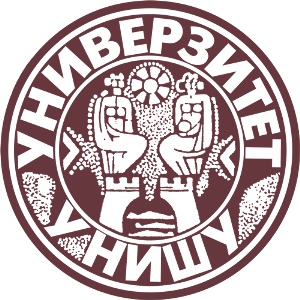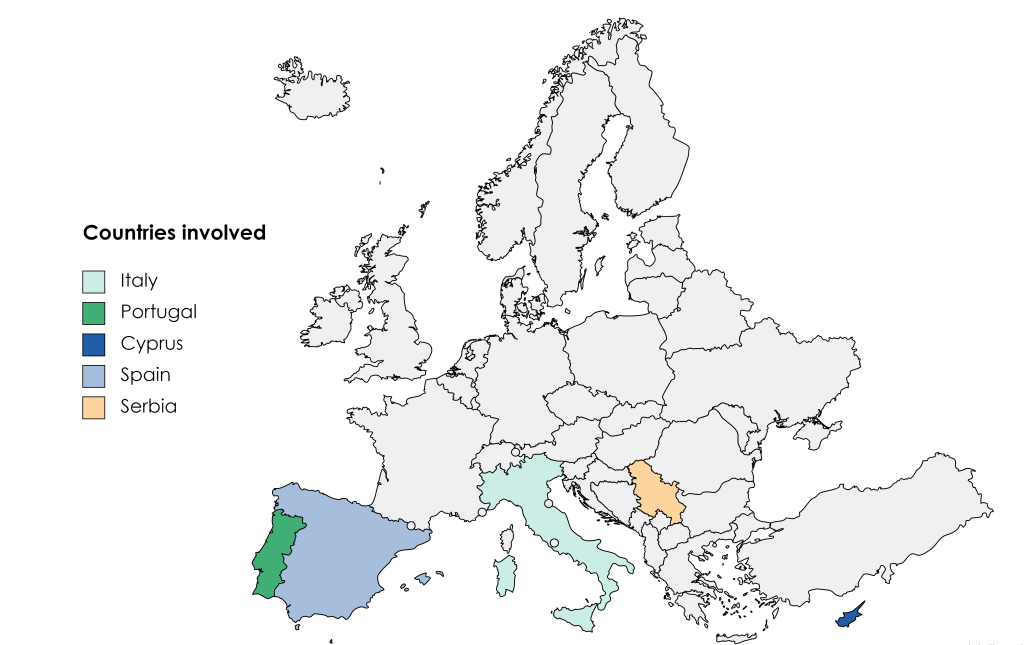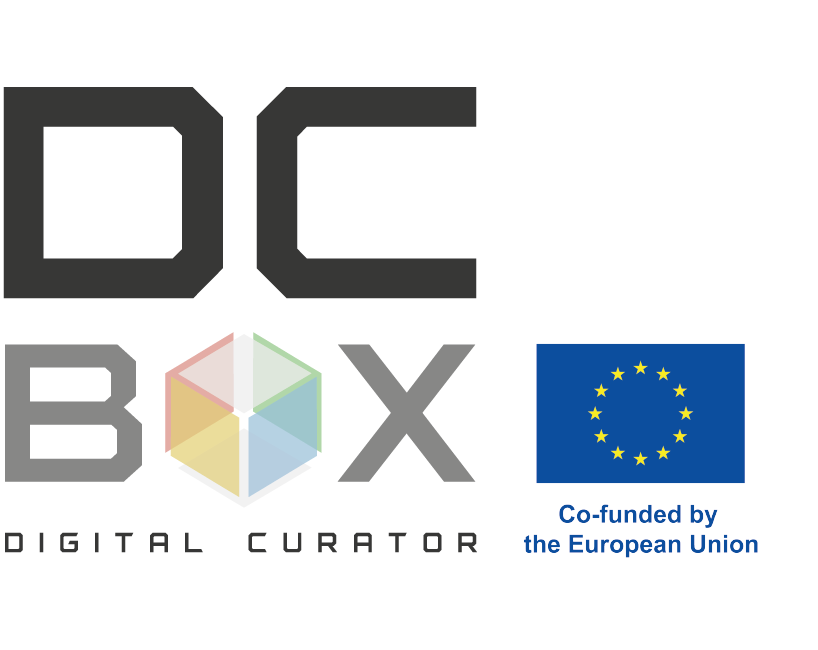Partnership
Ancona, Italy
The Università Politecnica delle Marche (UNIVPM) was established in 1971 as University of Ancona and in 2003 has changed its name in Università Politecnica delle Marche to stress its scientific and technological mission and vision.
- 17000 students
- Five faculties (Engineering, Science, Economic Sciences, Medicine and Agricultural Sciences),
- More than 7200 students, which permanently employ about 700 academics and 650 technical/administration staff
UNIVPM is very active and performant in the European R&D&I secured 52 FP7 projects with a total budget of over 12M€ and it is currently coordinating 3EU Projects and managing 40 of them with over 35 M€ in H2020.
UNIVPM offers Doctoral programs supporting students during their research.
The departments of UNIVPM that will be involved in the project activities are 2:
- The Department of Construction, Civil Engineering and Architecture (DICEA) is the main unit in the DCbox project and it serves as LP, It is a teaching and research division dealing with digital transition, sustainable practices and security of Heritage and built environment. The DICEA research unit has 50 permanent positions full, associate and assistant professors, working with several PhD students and post-doc research fellows, and 12 persons in the technical staff. It is recognized by the Italian Ministry and the third evaluation agency, ANVUR, as Department of Excellence.
- The Department of Information Engineering (DII) employs 137 people: 47 permanent staff (full, associate and assistant professors), 15 administrative and technical staff, 49 PhD students and 26 Post-Doc fellowships. The Department hosts several laboratories, and the activities of 12 spin-offs in ICT field. DII is involved in several research areas among which AI, Multimedia, Computer Vision, E-Learning, Robotics, Computer Security, Movement Analysis, Natural Language Processing, Software Agents.
The team members for DCbox will be the following.
- DICEA: Paolo Clini- full professor;
- Ramona Quattrini – associate professor;
- Eva S. Malinverni – full professor;
- Chiara Mariotti – researcher;
- Roberto Pierdicca- researcher
- Umberto Ferretti – research fellow
Within the 2 department 2 main LABs (DHEKALOS & VRAI) are involved in all learning experiences and ICT tools adopted within the project will be tested and enabled by the new facilities in the DHEKALOS Lab.
The laboratory DHEKALOS DICEA is equipped with cutting edge tools for digitising cultural and architectural heritage, landscape and territory, as well as the equipment needed to visualise, test and interact with any type of models and content. The facilities form a complete set with complementary features that enables 3D scanning in both static and dynamic modes:
- different terrestrial lasers
- 2 different mapping system (Kaarta + Scan & Go platform).
A complete set for photographic and photogrammetric documentation as well as for 360° images and video production. The photographic equipment is completed by mechanised slides and turntables, telescopic rods, stabiliser and a lighting system that guarantees perfect illumination, both indoors and outdoors, even with polarising filters.
SINERGIA is an INNOVATIVE SME of services for enterprises and Public Administrations established in Pesaro (Italy) in 2005 with a multidisciplinary team of more than 20 people, which offers organizational and technological tools based on ICT to increase competitiveness, productivity and efficiency necessary to achieve better performance and lower costs, creating “tailor-made” solutions starting from customer needs.
SINERGIA helps companies to make more profits consistently over time in terms of:
- increase revenues by serving very demanding customers from the point of view of compliance with the law and sustainability;
- reduce the non-quality costs and costs related to risks;
- reduce risks to control bodies in terms of respect for workers’ safety and the environment.
These customer needs are driven in managing change, through:
- The analysis of the current situation mapping the primary processes and support processes;
- The identification of critical issues and points that can be improved;
- The study of solutions and the redesign of the process in an organic way;
- The implementation of the change and the testing of the solution;
- Staff training and assistance until the goal is achieved.
SINERGIA has also extensive experience in the preparation, coordination and management of projects funded by the EU using high and complete professionalism in an integrated manner.
SINERGIA offers its clients the opportunity to bring forward their ideas, associate with strategic partners and find funding and appropriate tools to gain a competitive advantage.
The University of Córdoba (UCO) is a mid-sized public High Education and Research Institution in Andalusia, in the South of Spain.
- 21,000 students
- more than 1200 teaching faculty
- 700 employees
The UCO has successfully adapted to the 21st-century demands for excellence in teaching and proven scientific expertise.
The UCO offers an enormous variety of programmes of study ranging from the humanities and legal and social sciences to the health sciences or science and technology – three areas equally represented by the UCO’s three main campuses:
- the Legal and Social Sciences Campus in the city centre,
- the Health Campus in the western part of the city
- the Rabanales Agrifood, Science and Technology Campus to the east.
The University also has a Polytechnic School located 60 kilometres from the city in the town of Belmez.
The UCO is a pioneer in the creation of a unique model of excellence for the global future of food and agriculture: the ceiA3 Campus of International Excellence.
Built on a strategic grouping of five Andalusian universities (Almeria, Cadiz, Cordoba, Jaén and Huelva), the ceiA3 is an unparalleled project dedicated to food and agriculture; a basic pillar of the economy of Andalusia and a key sector driving the economic, social and political development of the region.
The Cyprus Institute has been developed as an international science and technology organization, to strengthen the research community of Cyprus, help transform its economy to a knowledge-based economy and to create a research hub for the Eastern Mediterranean region.
For realizing its vision the Institute is developing pioneering research infrastructures and programs involving cutting-edge, high throughput technologies, in order to address problems of local and regional significance and of international interest and providing high quality graduate education and training in related areas.
A key strategic theme for CyI is its large network of local, regional and international partnerships, which include universities, research institutes and other institutions relevant to its thematic areas.
The CyI research centers have been developed in partnership with centres of excellence in their respective fields:
- EEWRC with MiT;
- CaSToRC with the University of Illinois;
- STARC with C2RMF.
In addition, CyI has formed major collaborations with the Max Planck Society, the Jülich Supercomputing Center, CNRS, ENEA, CNR, ETH Zürich, Bibliotheca Alexandrina, Imperial College, Tel Aviv University, Skoltech and many others.
The Institute’s education remit is a key part of its activities. CyI currently offers graduate degree programs accredited by the Cyprus Agency of Quality Assurance and Accreditation in Higher Education (CYQAA).
Students are actively involved in research. They are immersed in the research environment of CyI with the help of faculty and staff members, and have direct access to experimental and computational facilities.
The programs are:
- Computational Sciences PhD
- Energy, Environment and Atmospheric Sciences PhD
- Science and Technology in Cultural Heritage PhD
- Simulation and Data Science MSc
- Environmental Sciences MSc or MSc/MPhil
- Digital Cultural Heritage MSc.
Following its launching in late 2007 with an initial small team comprising of about 10 members of faculty and staff overall, CyI has been continuously growing in the last few years and will soon engage more than 150 scientists and professionals, from around the world.
Lusófona University, maintained by the cooperative COFAC, is the core of a wide international network of educational, research and cultural institutions integrating twelve higher education institutions in Portugal, Angola, Brazil, Cape Verde, Guinea Bissau, and Mozambique.
Lusófona is the largest non-public university in Portugal, comprised of over 1500 teachers and researchers who engage with a student body of over 10.000. The University is organized around 10 schools that offer 40 undergraduate, 44 master’s, including 3 European Erasmus Mundus Joint master’s degrees, 9 PhD programmes, and several lifelong learning programmes for personal and professional development.
Lusófona University’s teaching and research activities are grounded in a central mission: to contribute to the scientific, cultural, economic and social development of Portugal and all countries where Portuguese is spoken, reinforcing collaboration within this linguistic community and with the cultural and geographical regions around them.
In pursuit of this objective, the University’s diverse academic departments span multiple disciplines, from fine arts to social sciences, from the pure sciences to applied science and engineering, from sports to health and veterinary sciences. In terms of research, Lusófona is structured around six R&D units funded the Portuguese agency for the promotion of science and technology (FCT), and one central institute for research and innovation (ILIND), often working in collaboration with other university-based research institutes across the world.
Lusófona will be involved with a multidisciplinary team involving the R&D units
- CeiED – Interdisciplinary Research Centre for Education and Development, for research fields of education, history, heritage, culture and urban studies – and their contribution to human development. CeiED academic staff with large experience in cooperation and participation in research are experienced in stimulating interdisciplinary approach and theoretical development, supporting knowledge exchange, coordinating and participating in international projects. CeiED has also the UNESCO Chair in Education, Citizenship and Cultural Diversity.
- CIDATE and L3EP the research group of CeiED for the fields of citizens science in the appropriation and transformation of the territory, and its experimental lab on education and public spaces (L3EP), which will be home for the Erasmus+, as it aims to experimentally foster innovation in the cross of the disciplines – in particular in their fields of non-formal education and training, use and appropriation of the urban fabric and socio-museology and construction of heritage.
- CICANT – Centre for Research in Applied Communication, Culture, and New Technologies encompassing the Lusófona University of Lisbon and Porto geared towards innovative and interdisciplinary research in two main subject areas: Media, Society and Literacies, and Media Arts, Creative Industries and Technologies,
- the School of Architecture, Arts and Informatics (ECATI), with the Departments of Architecture, Urban Planning, Arts and Design and the Department of Multimedia and Cinema. Both departments are the home for training at all levels of higher education, with undergraduate, masters and PhD programmes.
Therefore, Lusófona, will integrate several units, encompassing both research and teaching activities. This combination of research, teaching and dissemination is a path that leaves lots of room for professional growth and personal exploration and development.
This also puts Lusófona in a privileged position to dialogue with present-day culture from different perspectives. In its broad circle of actions, the home institution CeiED/CIDATE/L3EP plays a relevant role, as the transdisciplinary work along with the achievements and outputs of research projects developed make clear how academic research with teaching can successfully respond to societal challenges.
UNIMED – Mediterranean Universities Union, founded in 1991, is an association of Universities from Mediterranean basin countries. It counts 130 associated Universities coming from 23 countries of both shores of Mediterranean.
UNIMED’s aim is to develop university research and education in the Euro-Mediterranean area in order to contribute to scientific, cultural, social and economic cooperation. The image that best represents our association is that of a University without Walls.
UNIMED carries out the following activities in favour of the associated Universities:
- Promotion of the international dimension of universities;
- Encouraging participation of its members in international projects;
- Planning and fundraising activities: information on call for papers and opportunities offered by international organisations and the European Commission, partnership search, technical assistance, planning, dissemination;
- Promoting mobility in the Euro-Mediterranean region;
- Creation of thematic Subnetworks to foster scientific cooperation within specific fields;
- Organization of meetings, seminars and roundtables both at national and international level;
- Training for academic and administrative staff of Universities.
Through the many initiatives carried out over almost three decades, UNIMED has become a point of reference of international university cooperation.
UNIMED participates in a number of projects in different programmes (Erasmus+, Horizon, Interreg MED) and is currently coordinating 3 CBHE projects:
- ESAGOV, L’Enseignement Supérieur Algérien à l’heure de la Gouvernance Universitaire;
- SAGESSE, Amélioration de la Gouvernance dans le système de l’Enseignement Supérieur en Tunisie;
- DIREMED, Dialogue Interculturel, REseaux et Mobilité en MEDiterranée
and one E+ International Credit Mobility.
UNIMED is also engaged in the Erasmus+ Virtual Exchange programme and in a wide number of institutional partnerships.
The University of Nis was founded in 1965 as a state HE institution. It is a medium-sized, mature and well developed academic community, comprising 14 faculties:
- Faculty of Civil Engineering and Architecture,
- Faculty of Economics,
- Faculty of Electronic Engineering,
- Faculty of Arts,
- Faculty of Law,
- Faculty of Mechanical Engineering,
- Faculty of Medicine,
- Faculty of Occupational Safety,
- Faculty of Philosophy,
- Faculty of Physical Culture,
- Faculty of Science and Mathematics,
- Faculty of Technology
- Faculty of Education.
The fourteenth – Faculty of Agriculture has recently been founded and it enrolled the first generation of students in the academic year 2018/2019. Most of those faculties have composite structure, i.e. various departments, divisions or majors, offering wide and diversified study and research opportunities at both undergraduate and graduate levels, including opportunities to obtain a PhD degree.
The University of Nis presently has 24669 students at all levels of studies, 1723 teaching staff and 686 administrative and support staff.
UNI has significant experience in international programs such as Tempus, Erasmus, FP6 and FP7. Within the EM ECW program, the University of Nis entered the exchange of students and teaching staff in 2008 as a partner in the Project BASILEUS.
In 2011, UNI became a consortium member of the Project EM2STEM.
University of Niš also became partner of other Erasmus Mundus programmes, such as SIGMA, ERAWEB, EUROWEB, GREEN-TECH.
The University is currently involved in the following programs:
- ERASMUS+,
- CEEPUS
- HORIZON 2020.
One of the leading principles of the University of Nis is to become part of the European higher education area and to adjust its plans and programs against this aim, in the context of the reform of higher education system within the EU academic programs and other programs.









